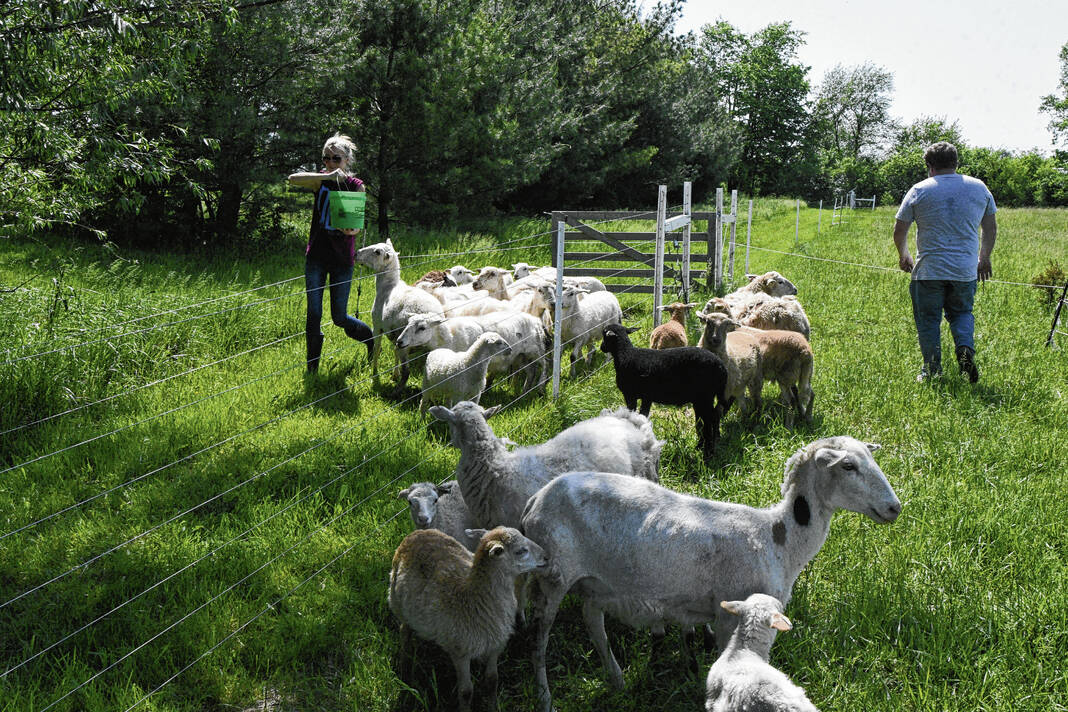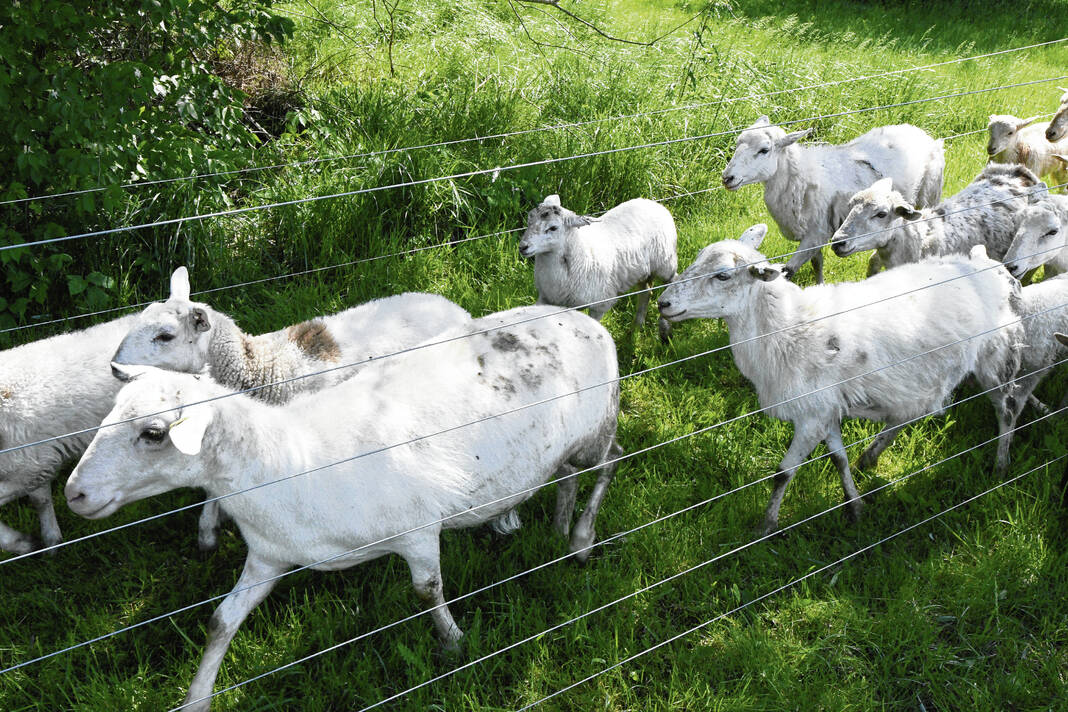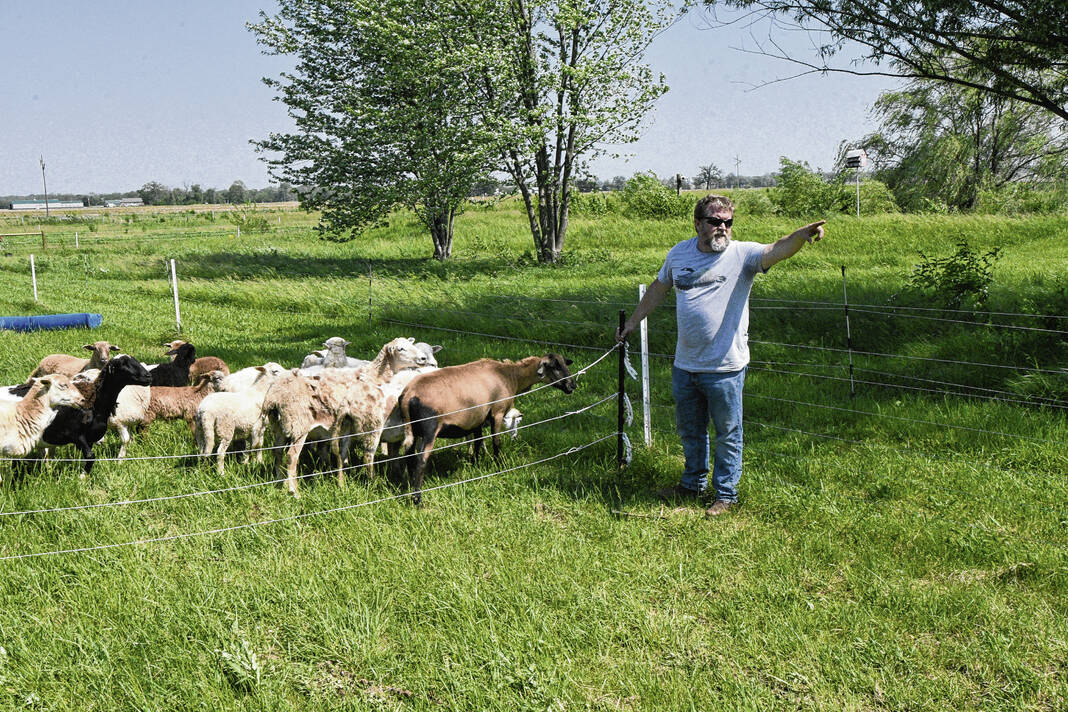At Sunovis Ranch near Trafalgar, Franklin College students led dozens of sheep through a narrow alleyway formed out of wire.
The students, and the sheep, were taking part in an experiment that would reveal new information about grazing. Their seemingly mundane activity was part of a larger project to model what rotational grazing on farmland could look like in the future.
Through the farming strategy, sheep rotate from one area of the farm to another, all under the shade of solar panels, to prevent overgrowth of weeds and other plants in certain areas.
While solar panels are not present at Sunovis Ranch, near the intersection of State Road 135 and State Road 44, if students can help successfully model the rotational grazing strategy, it could be used at a variety of farms that hadn’t previously considered solar panels, said Paul Cummings, who’s worked in the renewable energy industry for 15 years and owns Sunovis Ranch.
A $1,400 grant from the Indiana Sheep and Wool Market Development Program served as the catalyst for the Franklin College study, which will have ten students study sheep rotational grazing strategies over the course of two years, said Ben O’Neal, a biology professor at Franklin College. Some of the students will rotate out when they graduate, O’Neal said.
“Franklin College is always looking for ways to take areas of expertise from students and faculty and connect it with the community with real needs,” he said. “We want to take learning from the academic classroom to the real world. We want to use what we’re doing to accomplish things rather than just talking about them.”
O’Neal connected 10 of the school’s pre-veterinary students to Cummings’ farm. The project had two main goals: giving the students real-world experience to help them further their veterinary careers, and also to help the students work with sheep and better understand them.
The implications for the solar industry are secondary, Cummings said.
“The solar benefits, you never know what that looks like down the road and we may add more projects down the road, we’re not ruling it out. We’re excited about the solar aspect but the driving force is giving them opportunities,” he said.
Isabel Sanchez, a Franklin College student who recently completed her sophomore year, is interested in what the project can do when it comes to renewable energy.
“I hope to get a good experience out of it, especially on the renewable energy and plants side of things,” Sanchez said. “Even though I’m interested in renewable energy, plants are still a big part of my life.”
Samantha Schick, also heading into her junior year, first got into working with animals by visiting her grandfather’s ranch in Texas.
“I’ve worked at a vet for a while now and I’ve always been interested in learning more about large animals,” Schick said. “(It’s interesting) looking at how different protein levels and the amount of water in the plants affect the health of the sheep. I hope we’re able to answer some questions and get other people interested.”









